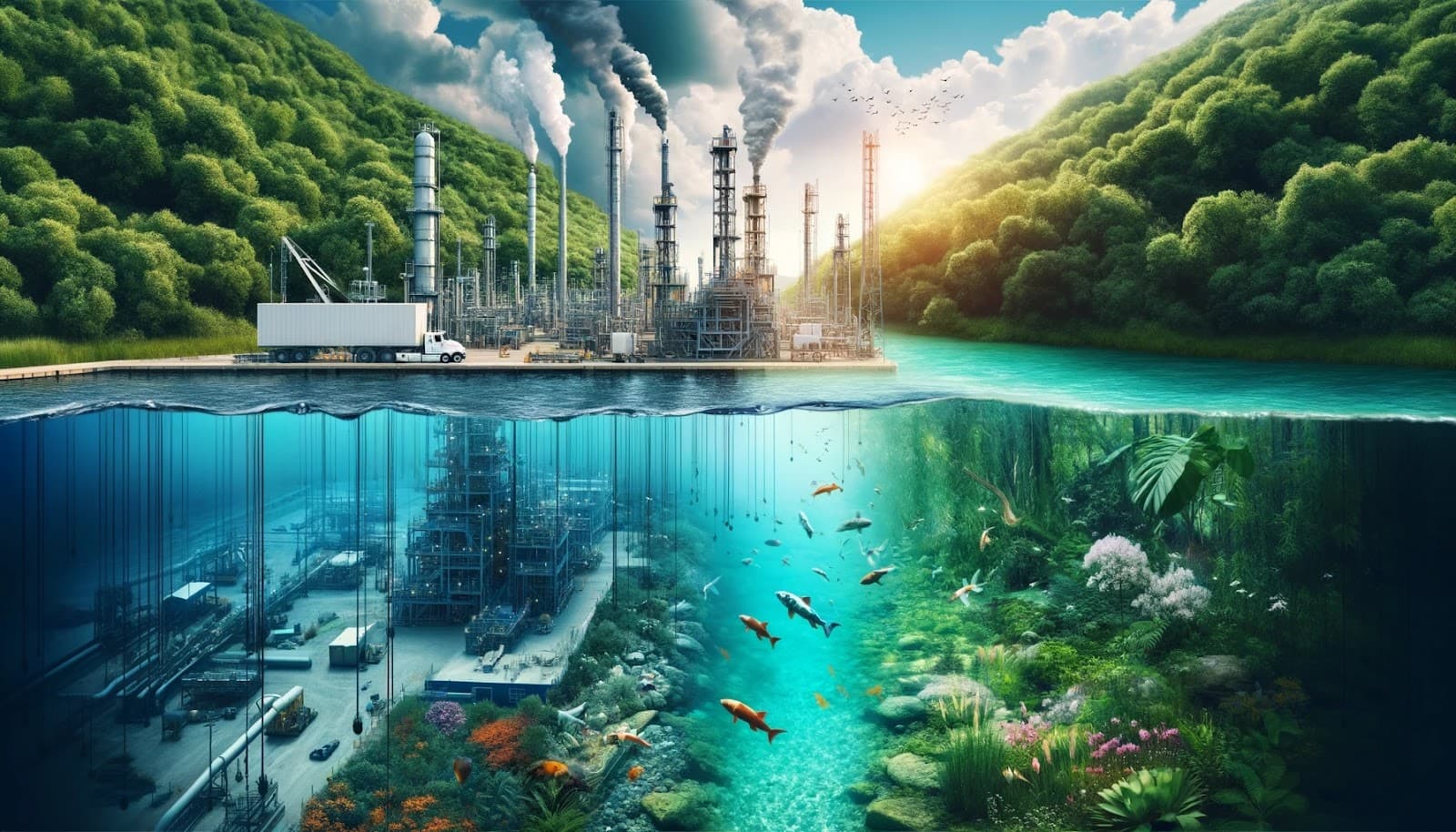In the pursuit of progress and economic growth, the utilization of natural resources has been an inherent part of human development. However, the pressing need to maintain ecological equilibrium and ensure the well-being of future generations has given rise to the concept of sustainable development. This article delves into the multifaceted relationship between natural resource exploitation, with a focus on water, and the principles of sustainability in North America.
Understanding Sustainable Development and Natural Resource Exploitation
Understanding sustainable development and natural resource exploitation involves a delicate balance between meeting present needs and ensuring the well-being of future generations and the environment. Sustainable development acknowledges the interconnectedness of economic, social, and environmental aspects, aiming to promote growth that doesn’t deplete finite resources or harm ecosystems. When it comes to natural resource exploitation, adopting a sustainable approach means utilizing resources in ways that minimize negative impacts. This involves responsible extraction, efficient use, and conservation efforts to maintain the integrity of ecosystems and preserve biodiversity. It also entails considering the rights and needs of local communities who often depend on these resources for their livelihoods. Achieving this balance requires comprehensive strategies that incorporate renewable energy, resource-efficient technologies, and equitable distribution of benefits. By aligning development goals with the principles of sustainability, societies can ensure that the benefits of natural resource utilization are enjoyed by current and future generations without compromising the delicate ecological equilibrium upon which life depends.
The Role of Natural Resources in Sustainable Development
Natural resources play a pivotal role in sustainable development by serving as the foundation upon which economic, social, and environmental progress is built. These resources encompass a wide range of elements, from minerals and water to forests and biodiversity. Sustainable development recognizes that these resources are finite and must be managed responsibly to ensure their availability for future generations. When harnessed judiciously, natural resources can drive economic growth, providing raw materials for industries, energy for societies, and revenue for governments. Additionally, they support social well-being by offering livelihood opportunities for communities, enabling access to clean water and nutritious food, and contributing to cultural and recreational experiences. However, the key lies in their prudent management, embracing practices that prevent overexploitation, minimize pollution, and protect ecosystems. By incorporating principles of conservation, efficient use, and equitable distribution, natural resources can be a catalyst for sustainable development that harmonizes the needs of people, the planet, and prosperity.
Applying Sustainability to Water Resources
Water, a finite and essential resource, serves as a quintessential example of the sustainable development paradigm. To ensure its availability for generations to come, sustainable water management practices are imperative. This involves maintaining ecological balance in aquatic ecosystems, avoiding over-extraction of groundwater, and minimizing pollution from various sources. By treating water as a valuable asset rather than an inexhaustible commodity, sustainable practices can be integrated into industries, agriculture, and urban planning.
Water: A Central Challenge to Sustainable Development
Water stands as a central challenge to sustainable development due to its critical role in sustaining life and shaping various aspects of society. As a finite and essential resource, water scarcity, pollution, and unequal distribution pose significant hurdles to achieving lasting development. The demand for water is surging with population growth, urbanization, and industrialization, straining available supplies. Moreover, water scarcity can lead to conflicts and displacement, particularly in regions where resources are limited. Pollution further compounds the issue, affecting ecosystems, human health, and agricultural productivity. Balancing the competing needs for water across sectors like agriculture, industry, and households while preserving aquatic ecosystems is a complex task. Sustainable water management strategies must be multidimensional, incorporating water conservation, efficient use, technological innovation, and equitable distribution. Addressing the water challenge is not only crucial for meeting basic human needs but also for advancing social progress, economic growth, and environmental stewardship, exemplifying the intricate intersection between water and the broader goals of sustainable development.
The Significance of Sustainability in Natural Resource Exploitation
The significance of sustainability in natural resource exploitation lies in its capacity to ensure the longevity of resources, safeguard ecosystems, and support the well-being of both current and future generations. Sustainable practices recognize that the Earth’s resources are finite and that their responsible use is essential to prevent depletion, environmental degradation, and social conflicts. By embracing sustainability principles in resource exploitation, societies can balance economic development with environmental protection, avoiding irreversible harm to delicate ecosystems and biodiversity. This approach also acknowledges the interconnectedness of various resource systems and the broader impacts on climate change and global ecological balance. Sustainable resource exploitation entails efficient extraction, recycling, and the development of alternative, renewable sources. By integrating sustainability into resource management, societies can mitigate negative consequences, promote equitable access, and ensure that natural resources continue to contribute to human prosperity without compromising the health of the planet.
Conclusion
The intricate interplay between sustainable development and the exploitation of natural resources underscores the importance of adopting conscientious practices. In North America, where the bounties of nature have fueled growth and innovation, striking a balance between development aspirations and ecological preservation becomes paramount. By embracing sustainable resource management, including water stewardship, we pave the way for a future where prosperity is not at odds with environmental integrity, but rather, thrives symbiotically with it. Through informed choices and collaborative efforts, the continent can navigate the path of sustainable progress, leaving a legacy of vitality and opportunity for generations to come.



